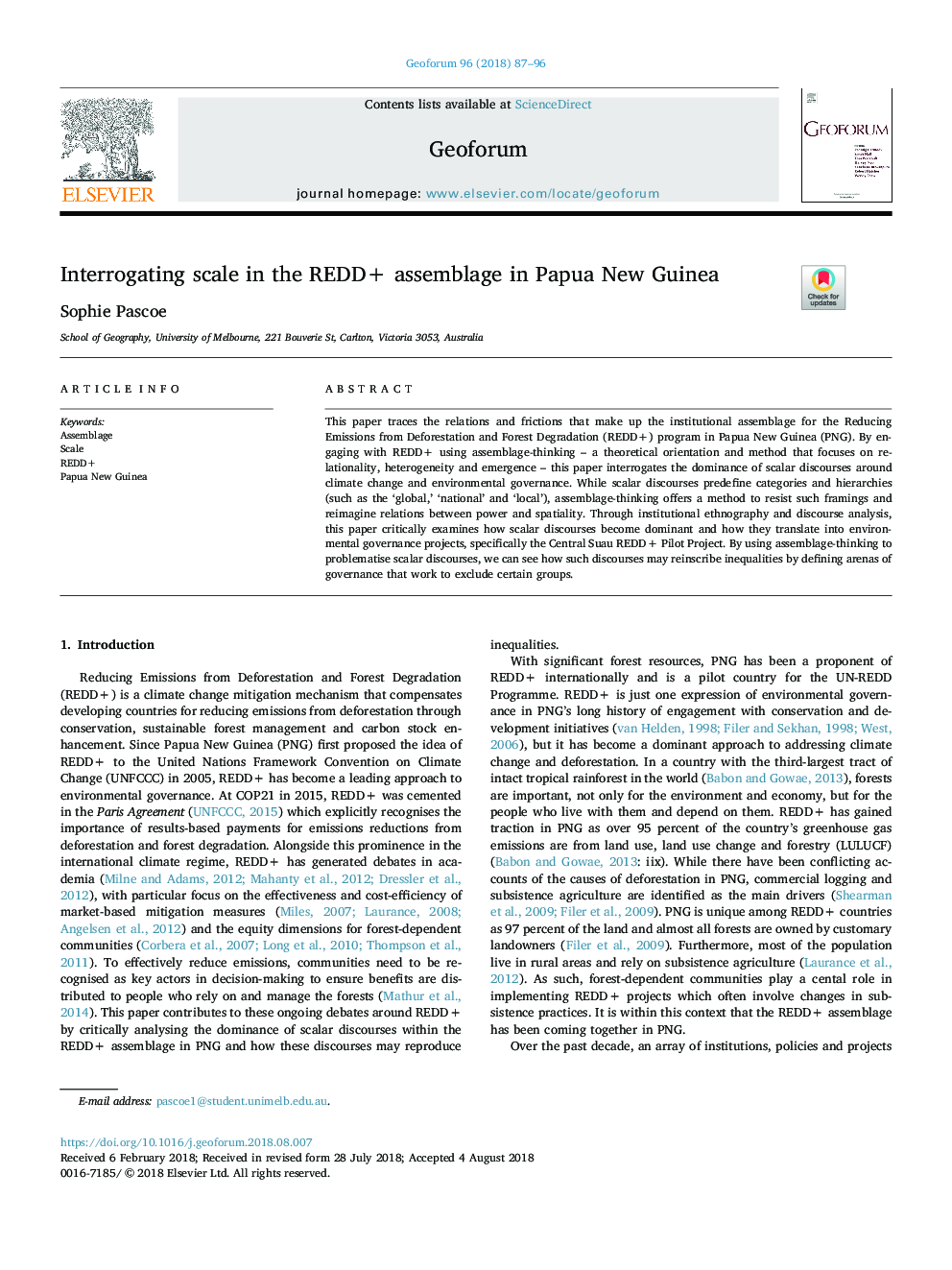| Article ID | Journal | Published Year | Pages | File Type |
|---|---|---|---|---|
| 7353260 | Geoforum | 2018 | 10 Pages |
Abstract
This paper traces the relations and frictions that make up the institutional assemblage for the Reducing Emissions from Deforestation and Forest Degradation (REDD+) program in Papua New Guinea (PNG). By engaging with REDD+ using assemblage-thinking - a theoretical orientation and method that focuses on relationality, heterogeneity and emergence - this paper interrogates the dominance of scalar discourses around climate change and environmental governance. While scalar discourses predefine categories and hierarchies (such as the 'global,' 'national' and 'local'), assemblage-thinking offers a method to resist such framings and reimagine relations between power and spatiality. Through institutional ethnography and discourse analysis, this paper critically examines how scalar discourses become dominant and how they translate into environmental governance projects, specifically the Central Suau REDD+ Pilot Project. By using assemblage-thinking to problematise scalar discourses, we can see how such discourses may reinscribe inequalities by defining arenas of governance that work to exclude certain groups.
Keywords
Related Topics
Social Sciences and Humanities
Economics, Econometrics and Finance
Economics and Econometrics
Authors
Sophie Pascoe,
